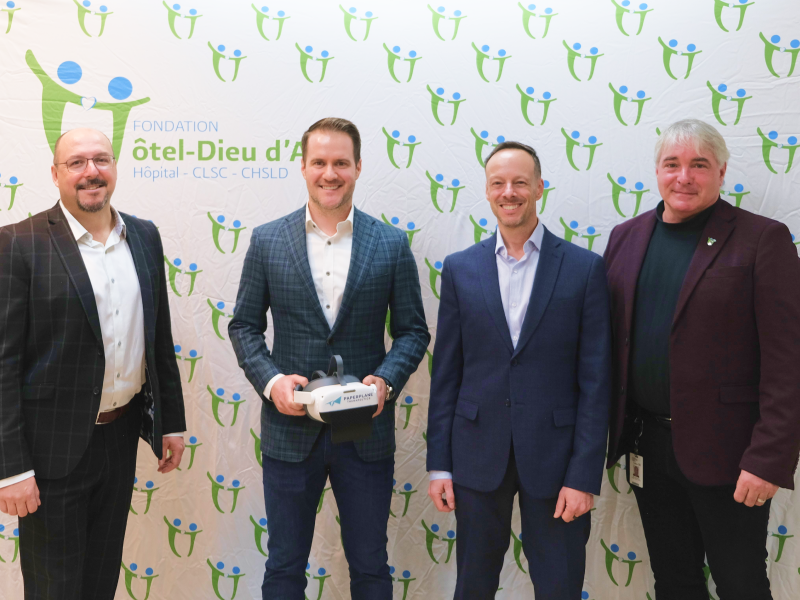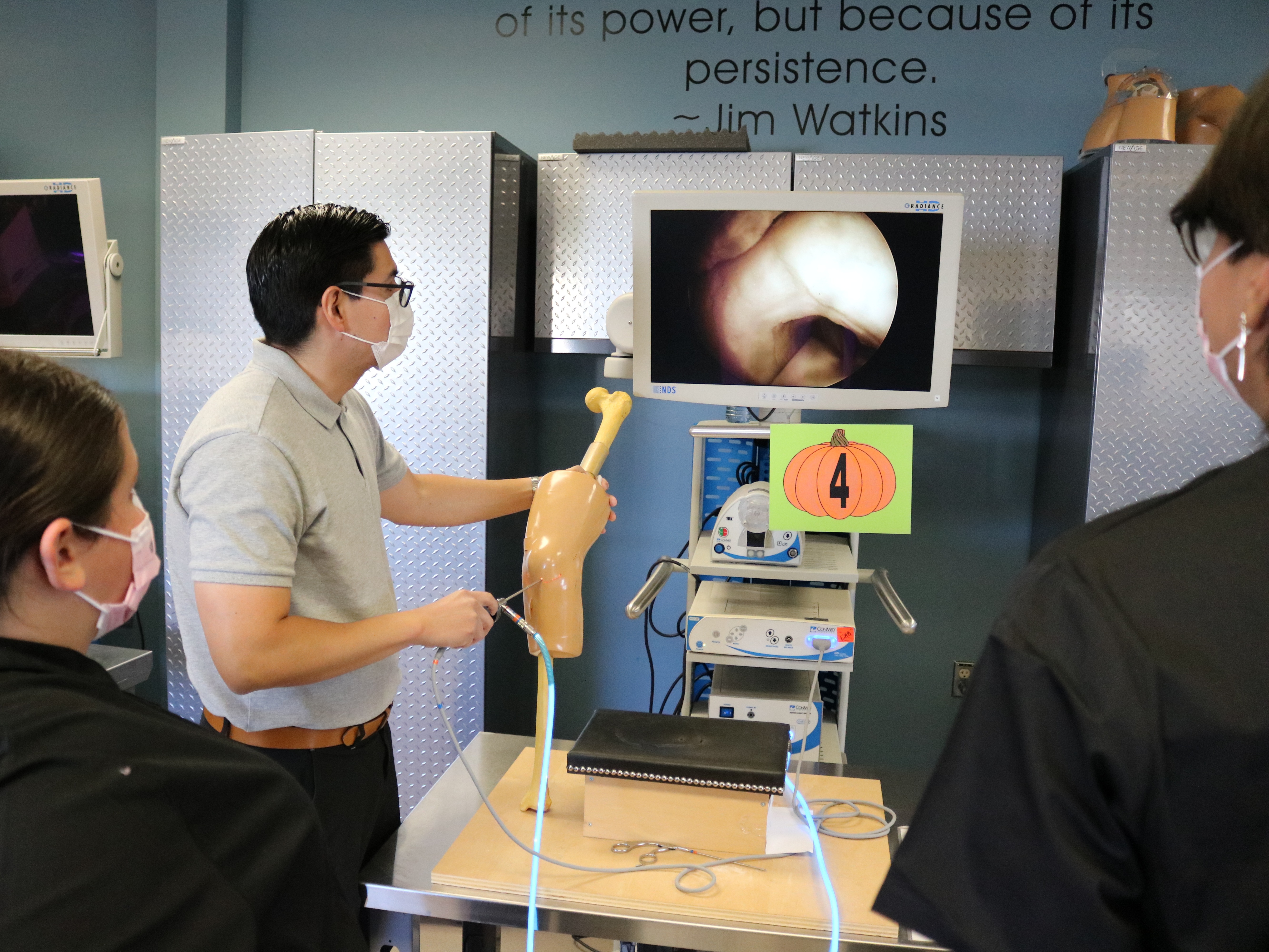
Health
Mobile health clinics join frontline fight against COVID-19
Jul 13, 2020
(ABOVE) With 235,000 Canadians estimated to be without a home at any given time, and opioid use a growing public health emergency, the demand for quality, primary healthcare service among a vulnerable street population is only intensifying. Now, with the onset of COVID-19, many of the high-tech “clinics on wheels” have taken on a new purpose to help limit the spread of the virus. PHOTO BY DARREN CALABRES
For those in Halifax who work tirelessly to provide street outreach to people in need, the arrival this year of a high-tech “clinic on wheels” was a game-changer.
The North End Community Mobile Health Clinic, powered by
TELUS Health
, was welcomed to help address an intense need for primary healthcare among the city’s homeless population who, because of mental illness, substance use, poverty, and other circumstances, face barriers to accessing medical care they can’t overcome on their own. But just two weeks after the clinic arrived, the pandemic did, too, with a state of emergency declared across Nova Scotia on March 22.
Marie-France LeBlanc and the team at the
North End Community Health Centre (NECHC)
knew what they had to do: To protect their vulnerable clients and the wider Halifax community, it was imperative to get the most at-risk, immune-compromised people safely housed. Then, when one of their clients tested positive for COVID-19, the team began working with public health officials to test all those experiencing homelessness and living in makeshift shelters.And so, overnight, the mobile clinic joined the frontline fight against COVID-19.
“It was trial by fire,” says LeBlanc. “We became the group that tested everyone in the shelter population, because we were already there supporting them. We knew this community, we knew the people, and we are trusted. It just was a natural fit.”

Powered by TELUS Health, high-tech mobile health clinics operate in partnership with non-profit organizations in 10 cities across the country. Staffed with health professionals, including outreach workers, street nurses, counsellors and doctors, the clinics exist to ensure all Canadians have access to quality healthcare, especially during the pandemic.
Challenging mission
The Halifax health centre is not alone in this challenging mission. The non-profit organization is one of 10 partners across Canada to use a new mobile health clinic this year through the
TELUS Health for Good
program. Similar clinics are already active in Montreal, Vancouver, Surrey, Victoria, Calgary, Edmonton, Waterloo Region, Brampton and Ottawa. Staffed with health professionals, including outreach workers, street nurses, counsellors and doctors, they exist to ensure primary healthcare reaches all Canadians, especially our most underserved citizens.With 235,000 Canadians estimated to be without a home at any given time, and opioid use a growing public health emergency, the demand for this kind of service is only intensifying.
With the onset of COVID-19, many of the mobile health clinics have taken on a new purpose to help limit the spread of the virus.
In Ontario, for instance, the team at the
Ottawa Inner City Health, Inc.
(OICHI) had been running the TELUS Mobile Health Clinic for less than three months when the partners involved in the project agreed to repurpose the specialized vehicle to create a mobile coronavirus assessment and testing service for the homeless.Arriving in January, the mobile clinic was originally intended to bring mental health, primary care and substance use treatment directly to clients on the streets.
Thanks to a swift pivot in March, however, the mobile service was quickly integrated into Ottawa’s COVID-19 response system for vulnerable populations and given priority access to testing and laboratory support. A mobile team that included a primary care provider and mental health nurse was able to use the vehicle to help contain the virus spread by going directly to the clients. In addition to testing, the mobile team created a comprehensive plan of care for each person, addressing their physical and mental health, substance use and access to a self-quarantine facility.
That mandate turned out to be surprisingly helpful in delivering care to people who are displaced, living in shelters or other temporary housing. Indeed, the service has become the primary support to vulnerable people living in a wide variety of group living settings who need access to specialized help.
“People who were not previously connected to mental health services have ended up being connected because of getting a COVID-19 test. It’s not necessarily an intended outcome, but it is a positive one,” says Wendy Muckle, OICHI’s executive director.
“One of the people tested at the mobile clinic has a pet boa constrictor that lives on his body. There are not many people who are going to do a COVID-19 test with somebody who's wearing a snake,” she adds.
The new normal
In Halifax, Ottawa, and eight other cities across Canada, TELUS has expanded its support for its Health for Good partners, providing laptops for medical personnel, and tablets and cell phones for those in quarantine. The devices, supplied through the company’s
TELUS Mobility for Good
program, include voice and data plans, ensuring clients can stay in touch with their healthcare team and keep entertained by social and streaming apps, a welcome distraction during isolation.“That connection to the outside world is so important to those in quarantine. It’s helped ensure really good compliance with self-isolation periods,” says Muckle.
In Halifax, Marie-France LeBlanc is looking to the future after months of exhausting work to keep vulnerable clients healthy and safe in a particularly challenging time.
"Our biggest challenge is providing care with dignity and with all the same excellent that anyone else would get walking into a hospital or clinic space. The mobile clinic helps us to accomplish that goal."
- Marie-France LeBlanc
LeBlanc concedes it’s hard to know what the future holds. But she is certain that her organization has the expertise, dedication, and tools to roll with whatever comes its way.
The mobile health clinic adds to that sense of confidence.
“Moving forward, we’ll be using the clinic for the foreseeable future,” says LeBlanc. “We're all looking at what our new normal is and taking the learnings from our experience should there be a second COVID-19 wave.”
For now, though, LeBlanc and her team are keeping their attention firmly on the welfare of the clients they serve.
“Sheltering at home, for people experiencing homelessness, is a very different experience from that of other Canadians,” she says. “Our biggest challenge is providing care with dignity and with all the same excellence that anyone else would get walking into a hospital or clinic space. The mobile clinic helps us to accomplish that goal.”


